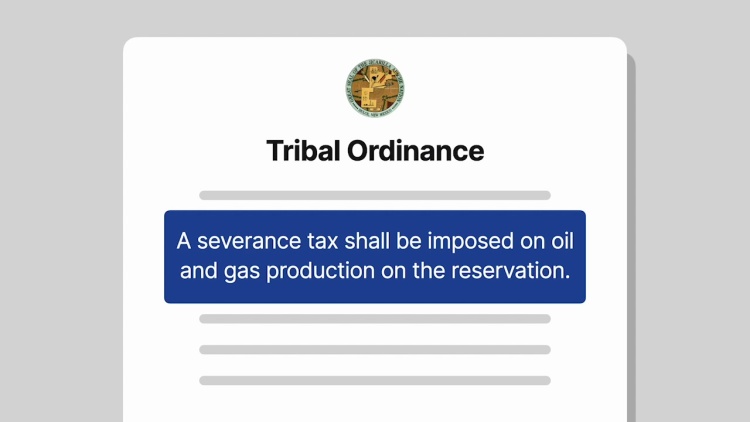Merrion v. Jicarilla Apache Tribe
United States Supreme Court
455 U.S. 130, 102 S.Ct. 894, 71 L.Ed.2d 21 (1982)
- Written by Lauren Groth, JD
Facts
The Jicarilla Apache Tribe (Tribe) (defendant) resided in New Mexico. The Tribe executed a series of mineral leases with non-Indian companies (plaintiffs) to develop almost 70 percent of the land on the Tribe’s reservation. The leases were subject to New Mexico state taxes on oil and gas production. In 1976, the Tribe passed an ordinance adopting its own severance tax to impose on the leases, which it was permitted to do under the Tribe’s revised constitution. The United States Secretary of the Interior approved the ordinance. The non-Indian lessees brought two separate legal actions against the Tribe, seeking an injunction to prevent enforcement of the tax. The plaintiffs argued that the power of the Tribe to tax the leases stemmed from the Tribe’s authority to exclude the plaintiffs from tribal lands. Further, the plaintiffs argued that because the tax was not included in the initial leases, the Tribe could not impose the tax later. The United States District Court for the District of New Mexico found for the plaintiffs, but the United States Court of Appeals for the Tenth Circuit reversed, holding that the power to tax was within the Tribe’s sovereign powers.
Rule of Law
Issue
Holding and Reasoning (Marshall, J.)
Dissent (Stevens, J.)
What to do next…
Here's why 907,000 law students have relied on our case briefs:
- Written by law professors and practitioners, not other law students. 47,100 briefs, keyed to 996 casebooks. Top-notch customer support.
- The right amount of information, includes the facts, issues, rule of law, holding and reasoning, and any concurrences and dissents.
- Access in your classes, works on your mobile and tablet. Massive library of related video lessons and high quality multiple-choice questions.
- Easy to use, uniform format for every case brief. Written in plain English, not in legalese. Our briefs summarize and simplify; they don’t just repeat the court’s language.





